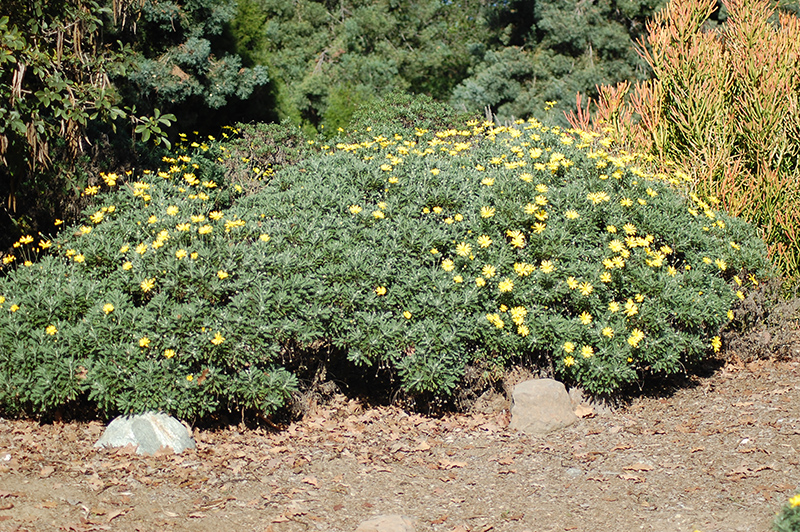Plant Finder
Height: 5 feet
Spread: 5 feet
Sunlight:
![]()
![]()
Hardiness Zone: 8a
Other Names: African Daisy; Shrub Daisy; Bush Daisy
Description:
A perfect plant for filling open spaces in a hurry; great for a flowering hedge in mild climates, and can be massed as a groundcover; ideal in hot dry beds and borders
Ornamental Features
Gray-leaved Euryops has masses of beautiful yellow daisy flowers with gold eyes rising above the foliage from early spring to late fall, which are most effective when planted in groupings. It has grayish green evergreen foliage. The ferny leaves remain grayish green throughout the winter.
Landscape Attributes
Gray-leaved Euryops is a dense multi-stemmed evergreen shrub with a mounded form. Its average texture blends into the landscape, but can be balanced by one or two finer or coarser trees or shrubs for an effective composition.
This is a relatively low maintenance shrub, and should only be pruned after flowering to avoid removing any of the current season's flowers. It is a good choice for attracting birds and butterflies to your yard, but is not particularly attractive to deer who tend to leave it alone in favor of tastier treats. It has no significant negative characteristics.
Gray-leaved Euryops is recommended for the following landscape applications;
- Mass Planting
- Hedges/Screening
- Rock/Alpine Gardens
- General Garden Use
Planting & Growing
Gray-leaved Euryops will grow to be about 5 feet tall at maturity, with a spread of 5 feet. It tends to fill out right to the ground and therefore doesn't necessarily require facer plants in front, and is suitable for planting under power lines. It grows at a fast rate, and under ideal conditions can be expected to live for 40 years or more.
This shrub does best in full sun to partial shade. It is very adaptable to both dry and moist growing conditions, but will not tolerate any standing water. It is not particular as to soil type or pH, and is able to handle environmental salt. It is highly tolerant of urban pollution and will even thrive in inner city environments. This species is not originally from North America.





